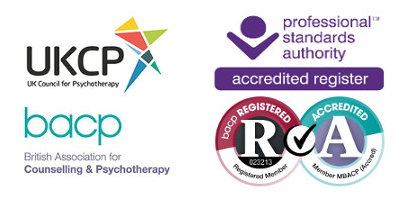Do not stand at my grave and weep.
I am not there. I do not sleep.
I am a thousand winds that blow,
I am the diamond glints on snow.
I am the sunlight on ripened grain,
…I am the gentle autumn rain.
When you awake in the morning’s hush
I am the swift uplifting rush
Of quiet birds in circled flight.
I am the soft star-shine at night.
Do not stand at my grave and cry.
I am not there. I did not die.
relationships
I have spent a lot of hours in therapy group settings over the past 15 years. There have been tears, there have been laughs, but nothing quite like this bizarre depiction, which gets better every time I view it. It’s from Israeli tv show ‘Ktzarim’:
If you get a chance, do consider joining a therapy group, short or long term. A safe, confidential group led by a skilled psychotherapist fosters the appropriate desire to speak and be heard. It supports dignity, self-respect and self-responsibility, and there’s an enormous need for that in this world of indignities and irresponsibility.
Therapy groups sutbly alter the expectations we’ve inherited from our family and schooling. They’re rare, invaluable spaces where we can try out new and different ways of relating and become saner, healthier social animals.
Opening Up My Heart To My Home
by Denise Dupont
Coming home.
Coming home to me.
This is the way I would like to be.
To walk in my home with love, integrity
Honour, respect for myself and respect for others.
Coming home to myself, means I take
Notice of me, my skin, my smell, my shape,
My hair, my sensuality and sexuality.
My dance and my love
My love for myself and my love for others
Coming home to myself is opening up my
Heart to the core of my existence
My essence, my beauty, my creativity
My soul and my roots.
Coming home is being able
to say to myself I LOVE YOU.
I Do Not Love You by Jeffery Lane
I do not love you because you are not good enough.
I do not love you because you do not deserve love.
My love is not something I will give you freely.
My love is something you must earn.
You want to know what you must do in order to be loved, and only I can tell you.
If I tell you what to do and you do it then you’ll expect me to love you.
So I won’t tell you what it is you must do, so you cannot do it.
How you feel about yourself is a major factor in the quality of your intimate relationships. Trouble in a relationship almost always involves a problem with self-esteem.
Self-worth is a natural product of receiving appropriate validation, attention and approval as we are growing up. You need to be confident about your competence, your mastery of the world. Beyond that, you need to feel that you are loveable, someone that others would want to be close to – competent or not – just by virtue of existing.
 Most of the shadows of this life are caused by standing in one’s own sunshine.
Most of the shadows of this life are caused by standing in one’s own sunshine. – Ralph Waldo Emerson
– Ralph Waldo EmersonWhen you don’t have a lot of self-confidence you tend to be so preoccupied with questions of self-worth that when you interact with someone else, especially someone who is important to you, you may not perceive what is going on very accurately. Questions like:
-
Am I good enough?
Will he like me?
Will she want me?
Do my feelings matter?
Am I safe?
Will I be attacked?
Will I be hurt?
Will I be laughed at or humiliated?
Is it safe to ask?
One of the things we have to do to develop our sense of self and greater self-esteem is to accept who we actually are, as opposed to who we are trying to fool ourselves or other people into thinking we are. This means experimenting, trying on different hats and finding out which one feels comfortable, exploring new activities to see which we enjoy and are suited to, taking chances, opening ourselves up a step at a time, allowing ourselves successes as well as failures, seeing mistakes and crises as opportunities to learn and grow. For many of us it means abandoning the belief that the alternative to being perfect is being awful.
Becoming a mature, autonomous adult is a lot about taking responsibility for our feelings, and as a first step we need to get clearer about what our feelings are. This is a good tool. Start a diary, write in it these sentence stems, be as honest as you can and just see what emerges. A diary is a fantastic place to have a heart-to-heart conversation with yourself, a great chance to get burdens off your chest. And where the sentence or sentiment is addressed to another person, pick whoever seems appropriate. The sentence stems are adapted from Nathaniel Branden’s ‘If You Could Hear What I Cannot Say’.
Allowing Others To See Me
If I were willing to be vulnerable I might tell you…
If I weren’t afraid of being condemned I might tell you…
If I weren’t so scared I might tell you…
Effective communication is crucial for effective problem solving in an intimate relationship. It’s usually how we communicate rather than what that causes a problem, for our messages of concern and hope and love don’t get through if our style doesn’t work with our partner.
If our communication is not moderated by tact and sensitivity our partner’s reactions may block the message we intended to send. And without clear communication we cannot make our needs known or negotiate on them.
It’s generally useful to be direct, and harmful to be ambiguous or give subtle hints. It’s useful to be precise, and harmful to be vague, leaving our partner to puzzle over what we really mean. It’s useful to be specific, giving concrete detail, but harmful to generalise, leaving ample scope for misunderstanding. It’s useful to be honest and speak from the heart, and harmful to say half-truths or to lie outright. It’s useful to respect our partner’s right to their own beliefs and decisions, but harmful to control or bend our partner to our will. It’s useful to honour our partner’s sense of self-worth and it’s harmful to be insulting.
In our own biographical past each of us learned habits and strategies that at some level worked for us – to be tactful or tactless, to aggressively control, to be empathic, or not, to be blaming or distracting or rigid or play helpless. As adults in intimate relationships we need to look at these ingrained styles with honesty and decide what we need to work at discarding or modifying.
For many of us anger is the hardest emotion to communicate to our loved one, but we do need to learn how to handle and to share all our feelings and in ways that are not destructive. Otherwise the feelings will leak out anyway, or be acted out in the form of coldness and distance, or be held in the subterranean volcanic hell of an inner rage, ready one day to burst out to destructive effect.
We cannot expect our partner to read our mind and simply know what we want. They’ll get it wrong anyway and probably grow tired of the guessing game in due course.
On the other hand, if we continually mis-hear our partner or don’t properly listen, because we’ve already made up our mind what they want, they’ll grow tired of trying to be heard!
In the end the only useful ways to communicate are those which lead to a successful resolution – this means communication based on mutual acceptance, respect, goodwill, openness and trust.
This moving poem was written by the psychotherapist Tim Foskett:
Tell your children about men who love men
And women who love women, in all manner of ways.
Tell them stories about princess who meets her prince, yes,
But tell them also about the princess
Who made the flower girl her lady-in-waiting,
And loved her dearly ’til the day she died.
Tell them of the soldiers
Who came back from the war loving soldiers,
And the people, from all walks of life,
who choose lovers sex-similar,
Not different.
Tell them so that your words break the silence,
For the silence kills more of us than the violence.
Tell them about possibilities.
About boys who like flowers,
And girls who like guns,
Men who wear dresses,
And women who don’t.
Remind them that nature is plural,
That life is multi-,
That all girly-boys aren’t gay,
And all girly-girls aren’t straight,
Tell them some of them are and some of them ain’t.
Tell them these things,
Because at some point, in some place,
They will be different,
They too will deviate from the norm.
And when that time comes,
They will know it’s OK
To be who they are,
And they wont be tempted
To betray the something inside that is true.
Tell them because one day their friend, their teacher, or their child
Will be lesbian. Yes, one day she will.
Tell them so that when that day comes
They know how to love,
And not how to hate,
Know how to love, and not how to hate.
Finally, tell them
Because they might be too,
And their ears will burn with relief and delight,
To know they are safe and known to you,
Not alien,
Not alone,
Not cast out and rejected,
But safe and known and loved by you.
Caring behaviours are the life blood of a relationship. They are those small, frequent acts of sensitivity, kindness and caring that let our partner know that she or he is important to us. They range from a warm greeting on return home, to a phone call during the day, to special gifts and cards at birthdays and anniversaries, to a back rub or a foot rub for a tired partner. They are signs that we matter and that our relationship is important.
A lessening of caring behaviours is often a sign that the relationship is under stress or that negative feelings are accumulating and grudges are being held. Often partners wait for good feelings to return before continuing caring behaviours. However, these good feelings are frequently elicited only by experiencing such caring behaviours. Therefore, to improve a relationship, it is important to take the initiative in offering acts of caring and kindness. It is important that each partner take responsibility for offering caring behaviours rather than waiting to see what his partner is going to do, in a tit-for-tat fashion. The following exercise is an important one to sustain a loving, nurturing relationship. Practice it whether or not you at present feel committed to your relationship. The only way you can make an intelligent decision about staying or leaving is to see how you feel after such positive acts of caring have been taking place.
EXERCISE: Make a list of 12 or more behaviours that your partner does, could do or that you wish he/she would do that help you to feel more loved, important, special. Think carefully of your wish list. It is a list of small present or potential sources of pleasure in your life. Make the list specific, e.g. not “I want you to be more considerate” but “I would like you to carry the groceries out of the car and stay and help me to put them away when I have been shopping”. Or “When I come home from work I would like 20 minutes to be left alone to unwind and read the mail”. Be as specific as you can. You can add to the list later as you think of other caring behaviours, but for now write at least 12. These are some examples from other people:
“I feel cared about when you…”
“…give me a massage or bath (not only as a prelude to sex)”.
“…shampoo my hair”.
“…ask me about my work or how I’m feeling or how my day went”.
“…plan an evening out instead of me planning it”.
“…kiss me goodbye in the morning”.
“…hold my hand in the movies”.
“…put your arm around my shoulder or your hand on the back of my neck”.
“…rub my head or play with my hair”.
“…do one of ‘my’ chores (e.g. make dinner, wash the dishes, mow the lawn)”.
“…exercise with me”.
“…are nice to my parents/friends”.
“…call during the day or if you are going to be late”.
“…give me love notes”.
“…bring me flowers”.
“…snuggle with me in the morning before we get up”.
You can include special circumstances, e.g.
“When I am sick, I love it when you…”.
“When I am tired…”.
“When I am worried…”.
“When I am afraid…”.
“When I am unhappy…”.
“For celebrations…”.
Then exchange lists with your partner. Read each other’s list carefully and clarify any confusion you may have as to what is being requested.
Feel free to add any caring behaviour your partner has listed to your own list, if it is something you too would find pleasurable.
Post your partner’s list somewhere you’ll see it every morning, e.g. bathroom mirror, dresser, fridge. For the next week, make a point of expressing your caring in at least 3 actions daily that your partner has requested.
Each evening, review both lists, mark the caring behaviours you noticed that your partner offered and the date, thank your partner, and if there are caring behaviours you’ve offered that your partner didn’t notice or mark, gently call attention to them.
Continue to offer caring behaviours and to acknowledge with appreciation those you receive. We all need to feel appreciated and we all want to receive pleasure. Take responsibility for noting or requesting those things that make your life happier, and don’t expect mind-reading. Caring behaviours nurture a relationship and create an atmosphere in which tenderness and love can thrive.




